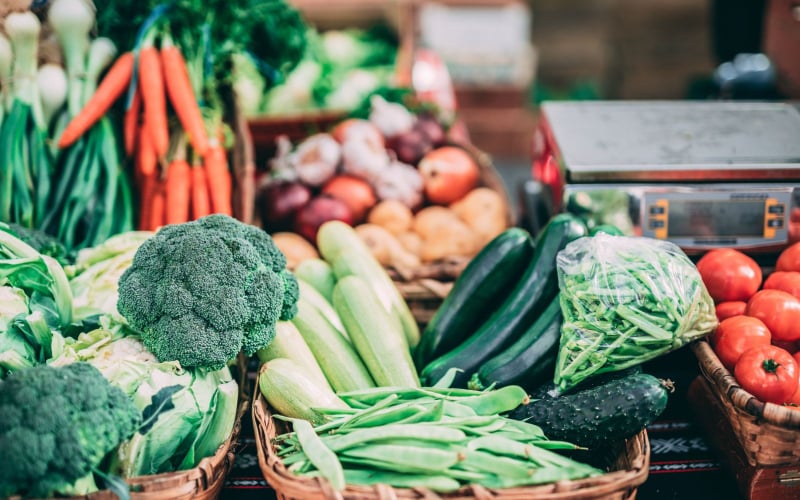Tips for Saving Money on Groceries
In this article, I'll go over my favorite money tips for saving on groceries.

Every household has some kind of budget that they follow. Some parts of the budget plan will obviously have more amount designated to it than others, but there is one category that you can control in order to save money. The grocery side of your budget handles a lot. It usually covers good items, cleaners, and in many cases the “extras.” But to make an effort to trim the budget there are a few things that you can do to this one category that will make a large difference. Here are some tips that I learned from David Ramsey.
Redefining the Budget by Changing How You Eat
The next time you are walking down the grocery isle filling up your basket there are some things that you will need to remember in order to save money.
Get Creative with Dinner
Dinner time is traditionally the largest meal of the day. It usually has the largest portions of meat and other items not usually consumed earlier in the day. To mix things up and save money try serving a different breakfast in the evening. Pancake batter is fairly inexpensive and will satisfy every person in the end. So instead of spending $20 to $30 on food to prepare one meal, you will have spent around $8 for the entire dinner. Over time the saving will add up to hundreds of dollars per year.
Total the Bill While You Shop
It seems that every item in the store has a price of $5 or more attached to it. By the time you have reached the middle of the list you have spent nearly $200. In order for you to know how much you spend before checking out add the prices up as you move along. By seeing the total add up you might think twice about buying an item that you do not really need. Keep junk food out of your cart in order to stay on budget and save money.
Up is Always Better
Adding up what you are spending as you shop is a great way to keep track on finances and staying on budget. But to stretch your budget and save money it is a good idea to round up. What this means is that you take the price of an item of $1.79 and round it up to $2.00. You will find that staying on budget is easier than you think.
One person named Jillian has stated that “I use tally marks to keep track of what I’m spending, and I always round up every item. Even if the item is $1.29, it gets two tally marks. That way, by the time I check out, I’m both aware of approximately what to expect and surprised to still be under what I wanted to spend.” Rounding up is also a great way to cover the amount of the tax you will pay when it comes time to check out.
Bulk is Not Always Better
Not everything that comes in bulk is cheaper. Stores that sell bulk items love to play games with the minds of their shoppers. When a person sees a large quantity they immediately think it must be cheaper. It is always a good idea to check the price per item tag under the price of the bulk item. It will give you the unit price that you can compare to the smaller quantity prices.
It is also a good idea to pay attention to sale prices. A 24-pack of soda may cost $8.99 and I usually cheaper than buying 2 12-packs of soda. This is true only until the smaller unit goes on sale. You can save money if you watch the sale of the other items.
The Freezer is Your Friend
One of the easiest ways to save money is to freeze your meals. Many people have to eat out several times a week because of schedule issues. What this means is that they are paying inflated prices for one meal. What normally would cost $2 a meal person at home now costs $12 or more per person to eat. If you freeze your meals and then heat them up when time is tight, you can save thousands of dollars per year.
Freezers are also good for storing bulk items such as meat or frozen vegetables. Large families have found the value of buying their meats in bulk directly from the butcher. This means that they will have hundreds of pounds of meat in the freezer. This keeps them from having to run to the store every time they need a meat product.
Cash is Always Better
There are a lot of reasons to pay with cash. The biggest one is that is just makes sense. The second is that it keeps you from going over budget. The easiest way to manage cash is to use envelopes. Each envelope represents a section of your budget. As you spend money from that part of the budget the cash is removed from that envelope.
This system is great because it can keep you from overspending. You are less likely to spend more once the cash is gone from the envelope. Once is the cash is gone; you cannot spend anymore until the next pay period. This makes you stretch those dollars a little further.
Know the Tricks
Supermarkets are masters at getting people to buy the bigger and higher priced items. When shopping it is always a good idea to look up and then look at the bottom shelf. Retailers will place the cheaper and higher quantity items at the bottom where people have a hard time reaching them.
It is also a good idea to shop at different stores. Just because one item is at one store doesn’t mean that it will not be cheaper at the next. Stores are in competition with each other, and they will sometimes undercut each other’s prices just to steal customers from each other.
There are many ways that you can save on your food bill each month. It just takes a bit of creativity to make it happen. Reviewing your budget each month is a great way to fine tune it to meet up with your ever-changing life. The few dollars you save today will mean more you can enjoy life with later.








